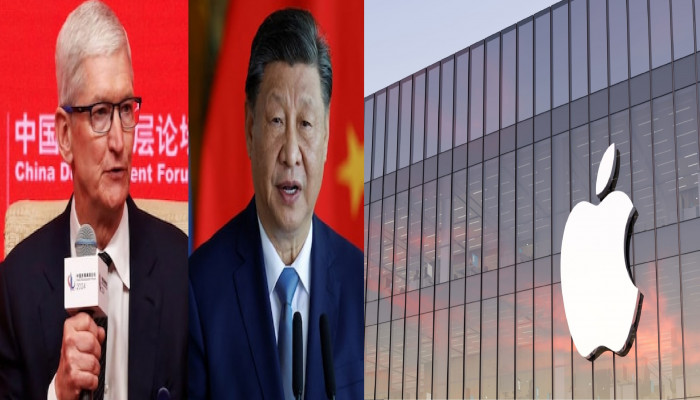China stalls Apple’s supply chain growth in India, Vietnam, blocks key materials, machinery
- In Reports
- 07:13 PM, Jan 15, 2025
- Myind Staff
Apple's plan to move its supply chain away from China is facing some challenges. The Chinese government is tightening controls on key materials and high-tech equipment, according to a report by Asia Nikkei. For many years, China has been crucial to Apple's manufacturing because of its low labour costs and strong infrastructure.
However, Apple began looking elsewhere due to the interruptions caused by the pandemic, increased labour prices and persistent trade issues. Under the China Plus One plan, the corporation shifted production to Vietnam and India, both of which provide easy access to rapidly expanding markets, advantageous trade rules and reduced costs. India is rapidly becoming a major centre for iPhone assembly, taking advantage of its large and affordable workforce, along with government incentives. Meanwhile, Vietnam has become an important location for manufacturing AirPods and other accessories, benefiting from its growing electronics industry and quick adoption of Apple's high manufacturing standards. However, China is not happy about Apple moving its production elsewhere.
China is taking steps to limit the export of important materials that Apple needs, such as rare earth minerals and advanced manufacturing equipment. This move is seen as an attempt to protect its position as a global leader in manufacturing and prevent companies like Apple from leaving, according to an Asia Nikkei report. The US has used similar tactics before, such as restricting semiconductor exports, to maintain its tech dominance. For China, losing Apple would be more than just an economic setback. Apple has played a key role in helping China become a major tech player, so if the company moves away, it would be a significant symbolic loss. If other companies also leave, it could weaken China’s hold on global manufacturing.
Diversifying its supply chain is a wise strategy for Apple. By distributing production throughout several nations, the likelihood of issues like trade disputes, natural catastrophes or pandemics creating significant disruptions is decreased. Additionally, it provides Apple with improved access to expanding markets. Apple is able to dodge high import duties by producing its goods in countries like India, which lowers the cost of its products for local consumers. Having operations in multiple countries gives Apple greater leverage with suppliers and governments. Since the company isn't reliant on just one location, it's less affected by changes in trade policies or unexpected disruptions. If a country imposes tariffs or faces a problem, Apple can easily move production to another place, ensuring everything continues without interruption.
Despite Apple's efforts to diversify, it still depends heavily on China. Many essential materials for iPhone components, like batteries and magnets, come from China. Additionally, the precise tools needed for Apple's manufacturing are also made there. Because of this, it's nearly impossible for Apple to completely cut ties with China in the near future. Even though Apple has spread its production to other countries, it still relies on Chinese-made components. This means that even a small delay in shipments from China could cause problems elsewhere in the production process. Apple's challenge is finding a balance — staying flexible and resilient in its supply chain, while still depending on China for these critical parts. For China, keeping Apple's business is important for maintaining its economic power and position as a tech leader.







Comments